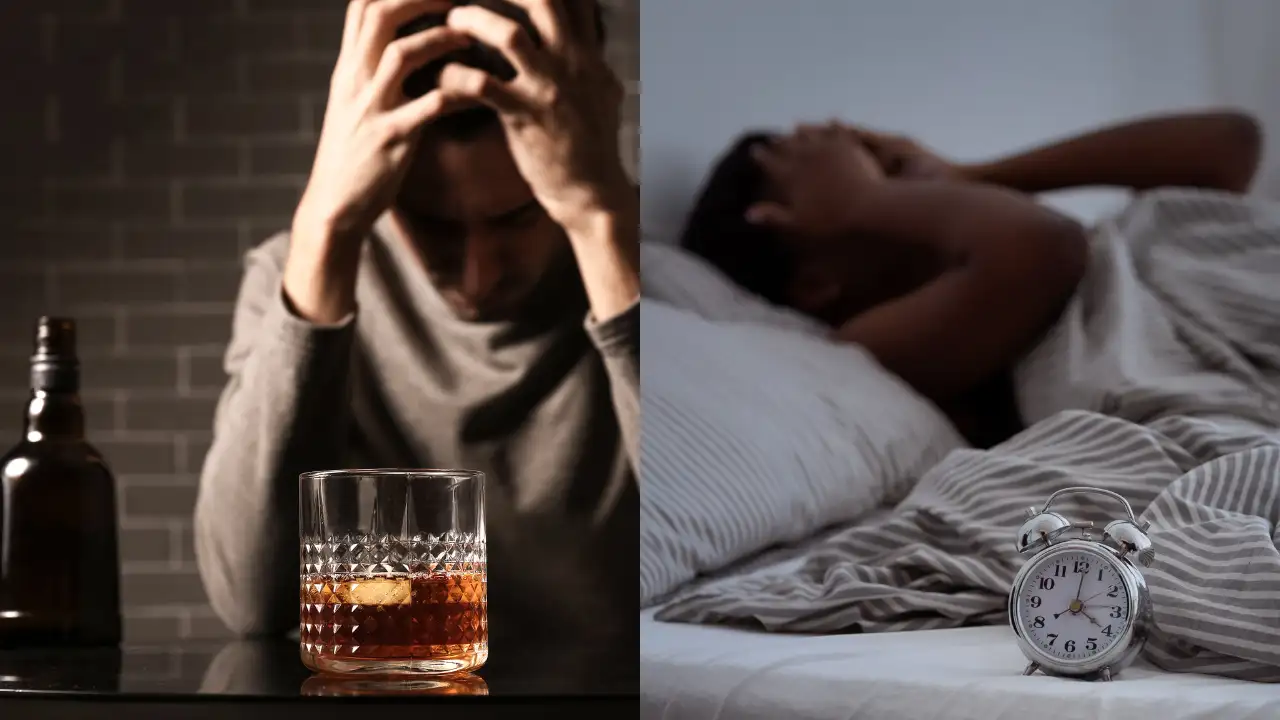It has been a long day. You pour yourself a glass of wine or whisky, sink into the couch, and feel that slow wave of calm roll over you. One more sip, and off you go to bed, convinced that your nightcap is helping you sleep off faster than anything. But here is the truth: while alcohol might feel like a shortcut to a good sleep, it is actually a one-way ticket to sleep sabotage.
What is nightcap? Back in the early 18th century, a nightcap referred quite literally to a soft, cosy hat worn to bed. The term did not always involve pouring something into a glass. Before modern heating became a household staple, keeping your head warm was essential for a good night’s sleep. Practical, snug, and entirely alcohol-free.
For many, alcohol seems like the perfect solution to a great sleep; it quiets the mind, slows the body down, and makes your eyelids heavy. Speaking with CNN Health, Dr. Timothy Roehrs, former director of research at the Sleep Disorders and Research Center of Henry Ford Health System, said that it is because alcohol tampers with the brain’s excitatory neurotransmitters—the little chemical messengers that usually keep you buzzing and alert. By calming these down, alcohol flips the switch to "drowsy mode."
How Alcohol Affects Sleep
The issue is what comes after you’ve fallen asleep. During the first three to four hours of sleep, alcohol is reaching its peak concentration in the body, which explains the initial onset of that sleepy sensation. However, in the second half of the night, people will experience a “rebound effect,” resulting in more frequent awakenings and disturbances as the night progresses and alcohol is metabolised, Dr. Anthony Reffi, a clinical psychologist and assistant scientist, told the publication.
Moreover, alcohol messes with your REM sleep. That is the part of the cycle when dreams happen and your brain gets down to business with memory, learning, and emotional fine-tuning. Without enough REM sleep, you may wake up feeling groggy, moody, and weirdly forgetful.
One Size Does Not Fit All
How your sleep is affected by alcohol varies with your sex, weight, metabolism, and, naturally, how much you drink. A large wine may send one into a snooze, and another hardly notices it. But however high (or low) your tolerance is, alcohol's not working in your sleep's favour.
And if you are already taking a nighttime medication—perhaps for blood pressure or anxiety—combining that with alcohol is like putting your coordination on a crazy rollercoaster ride. The amplified sedative effect may seem restful, but it raises your odds of having a fall or an accident if you need to get up during the night. Midnight bathroom runs are a lot more dangerous when your equilibrium is not quite perfect.
So, you don't have to give up your go-to beverage forever, but perhaps it's time to rethink the timing. Or better yet, switch to healthier habits that actually encourage deep, restorative sleep.
Five Sleep-Friendly Habits to Learn
- Establish a routine sleep schedule: Go to sleep and wake up at the same time each day—yes, even on weekends. This will keep your internal body clock running on time.
- Develop a bedtime routine: Disconnect from screens one hour before sleeping, and switch them out with relaxing activities such as reading, writing, or soothing stretches.
- Steer clear of caffeine past 2 p.m.: It is a subtle stimulant that can remain in your system and affect sleep time, particularly if you have a sensitivity to it.
- Make your bedroom cool and dark: A slightly cold, quiet, and dark room simulates your body's natural sleeping environment and encourages greater relaxation.
- Cut back on late-night snacking: Digesting food too close to bedtime can cause discomfort and disrupt your sleep. Aim to eat your last meal two hours before bed.
